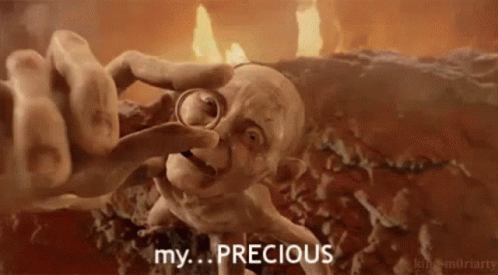Do you work in a radio organisation that is planning to apply data-science to on-air content evaluation? You are lucky!
Other companies are struggling to afford a yearly strategic market study, a focus-group every semester or a music test as often as possible. For most stations, not all of those are realistic. For many, none.
Meanwhile, your organisation is planning to achieve daily insights. Congratulations, you are about to belong to a very select club.
If you are in charge of the implementation of this data strategy, you have a bumpy road ahead, though. We know because we’ve been working with radio groups in that club for years. All of them faced the same issues you are probably starting to feel or about to encounter. Let’s see if they resonate with you. Hopefully, we can point you at the solution, saving you time and struggle.
These are some of the pains expressed by those who walked the same path before you:
"The amount of data we collect is overwhelming. We don't get to turn those into actionable insights."
"There's a gap between our data guys and the radio programming team that we don't get to bridge."
"Our on-air team doesn't find data relevant, meaningful or even understandable."
In one of our previous articles, we saw these are common problems when introducing a data strategy, not at all exclusive to Radio or on-air evaluation.
Problem 1: Data not turning into insights
Data and insights are two different things. Insights need to be produced, created through understanding and analysis of data. Tom Davenport, expert on management transformation, says insight creation requires a correct initial framing. That framing comes from the understanding of the problem to solve. Analyst and decision maker need to be aligned in the comprehension of the problem. The final insight consumer, the decision maker, commonly in a different area of the organisation, needs to be part of the insight generation process from the beginning. In other words, without the participation of the decision maker, data cannot convert into insight successfully.
Let’s clarify further, just in case. The decision maker, the final insight consumer, must be the person who best understands the problem to solve and how to execute the solution.
In our case, within data-science applied to on-air content evaluation, both the programming and on-air teams at the station need to involve in the insights creation process from the starting point.
Problem 2: Inaccessible data
We’ve already seen above that a universal data decision maker is a bad idea. Data should not have a few owners, one being the analyst and the other the decision maker for all problems to solve.
Some organisations treat data as their Lord-of-the-rings-like precious (remember Gollum?). It’s silly making accessing data as difficult as accessing the Situation Room at the White House. (Yep, from The Lord of The Rings to The West Wing).


Accessibility is not only about making data reachable, also usable. As we already said, the more people with different problems who understand data, the more comprehensible, meaningful, relevant insights with solving potential we’ll create from data.
Again, what does that mean in our case, for on-air content improvement? Programme Director, Music Director, show hosts, show producers, news editors, etc., should be able to access and understand data.
Problem 3: Data is not understandable
We’ve already seen the first likely reason. If Programme Director, Music Director, show hosts, show producers, news editors, etc. don’t understand data it’s probably because they weren’t involved in the first place. If these decision makers and the analyst/s didn’t align, like Davenport suggests, data were not correctly framed for solving their specific problems.
We dream of a future in which every department, every team, every professional at the station is capable of reading, working with, analysing and communicating with data. Like the expert in Data Literacy Jordan Morrow says, both the employee and the company will benefit from smarter and faster decisions.
Back to today’s reality. Like any type of learning, it will take time. We all know time is one of the scarcest goods in our organisations. That’s usually the case within radio programming and on-air teams. Tell your morning show hosts or producers they need to put a number of hours into data weekly (or daily!) and see the faces.
Problem 4: Insights get ignored
This is an extract from a Medium post by Jeff McClelland, Lead Analyst at Transfer Wise:
"Like all analysts, we worry about getting the numbers right. But our greatest fear isn’t messing up a formula. It’s a much worse scenario: working tirelessly to produce cutting-edge insights, only for them to be ignored by the rest of the company. When hard work and interesting conclusions don’t translate into meaningful impact, things can get pretty frustrating, pretty quickly".
They don’t silo analysts into a separate Business Intelligence department. Instead, all their analysts work within operational teams, sitting side-by-side with product managers and engineers. It’s critical that analysts don’t become a bottle-neck for data, McClelland says.
From alignment to literacy
Given that data fluency in our radio programming and on-air team is not realistic short term, let’s define a long term plan.
We saw how to prevent each of the listed problems. This can already help us define a path:
- Involve the decision makers of your programming and on-air teams, like the Programme Director for instance, in your data strategy from the beginning.
- Don’t restrict access to data. Do the opposite, facilitate it.
- Together with your programming/on-air teams, make data not only understandable, but meaningful to them.
- Put data analysts into your radio making teams, don’t enclose them in a stranger department.
Take a shortcut!
There’s a faster way. With Voizzup you can start applying data-science to on-air content evaluation and, therefore, listener engagement improvement next week.
We built, crafted and calibrated our technology for data collection, our insights generation process and our methodology for a more agile decision making, through years working with radio programming and on-air professionals. Public and commercial radio organisations, both music based and spoken focused formats, in three different European markets have already become insights driven with Voizzup. Our expertise both on data-science and Radio industry makes us the perfect hybrid for enabling daily insights and continuous improvement at your station.
Is your organisation ready to take the leap? Let’s talk!
Emails us to: team@voizzup.com




